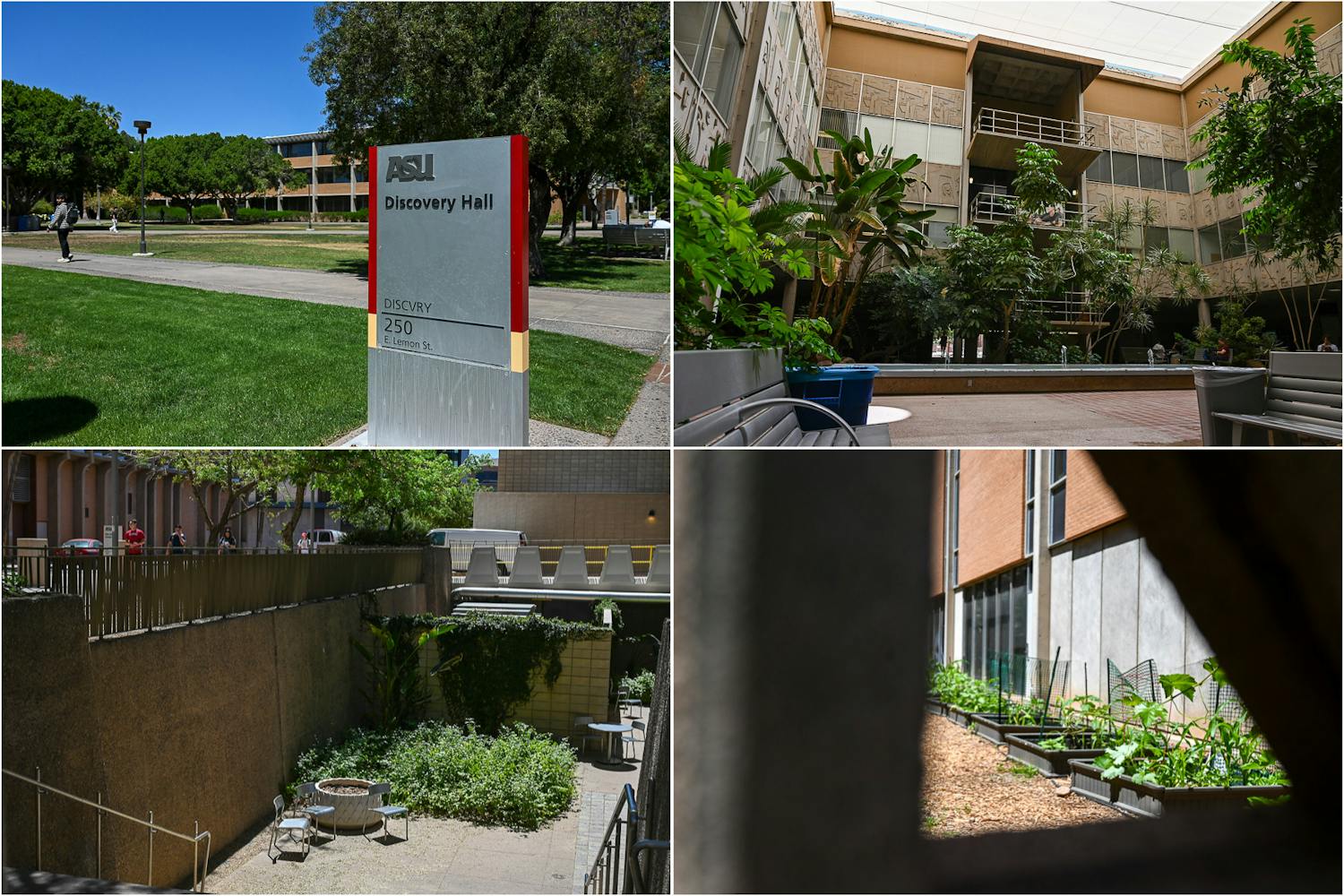Rafael Martinez Olivera remembers waking up for school and his parents were already at work, and coming home to find they were still working because of long, demanding hours.
Martinez Olivera is now a junior studying psychology and the co-founder and members coordinator for the College Assistant Migrant Program Organization of Students at ASU. The organization is one of multiple initiatives in the ASU community raising awareness of the unique challenges of migrant and seasonal farmworkers while working to combat labor exploitation and trafficking.
CAMPOS focuses on supporting students from migrant backgrounds and raising awareness about farm workers' issues. Focusing on migrant and seasonal farmworkers in particular, the club hosted multiple events for National Farmworker Awareness Week from March 25 - 31, such as a "Know Your Rights!" event with Aliento AZ and another event writing letters to farmworkers.
Aaliyah Camarena, a junior studying media arts and sciences and vice president of CAMPOS at ASU, said she grew up with a single mother who worked in the fields. She said her mother's 16-hour work days were normalized within the Yuma area.
"This week is very important because it shows how much these people work to provide food for everyone," Camarena said. "I feel like people don't realize that."
There were 80,437 crop workers in Arizona in 2023, according to a UA comprehensive study. Around 28% of these workers are migrants.
Maria Flores, a junior studying criminology and criminal justice, as well as justice studies, is the president and co-founder of CAMPOS at ASU. She emphasized the impact of working in harsh conditions on farm workers' health, including exposure to harmful pesticides, working in extreme heat and long-term physical damage.
Flores reflected on the hardships her grandfather endured while doing field work cutting broccoli — struggles that still affect him today.
"He can not get up from bed because he worked in the fields, hunched over," Flores said.
Flores said additionally, many farmworkers without permanent legal status face fear of deportation, noting that some are threatened by their employers and that language barriers only make the situation more difficult.
"There's always that fear of, if they speak out, their boss is going to call ICE on them," Flores said, adding that the new Trump administration is heightening these fears.
She said some people worry for the economy when mass deportations occur, although Flores advocates a need to pay more attention to the human component of the issue.
Ezequiel Dominguez, a PhD student studying social work, defines the deportation threat dynamic as an example of labor exploitation.
Dominguez co-founded the Arizona Labor Trafficking Outreach Project in 2021 to provide proactive outreach and resources to day laborers and farm workers. He said there is limited support available for victims of labor trafficking compared to other forms of trafficking and a higher risk for migrants.
Similarly to CAMPOS at ASU, Dominguez's organization brings awareness about different forms of labor exploitation, such as a need for shade access, pesticide safety trainings and water breaks.
He described ALTO as a coalition of 10 social service and governmental agencies, like the International Rescue Committee and the Mexican Consulate.
ALTO focuses on educating farm workers and other day laborers about their rights and providing resources like "Know Your Rights" cards and surveys. To do this, Dominguez said they search around the Valley for those waiting on "precarious or informal work," noting that these workers are vulnerable to labor exploitation.
He said farmworkers have been historically excluded from federal labor protections.
"Racism and xenophobia definitely contribute as to why farm workers are continuously excluded from laws, and why there's nobody creating new ones," Dominguez said. "It's not like farm workers aren't advocating anymore."
Dominguez said ALTO conducts surveys of the farmworkers and day laborers they encounter, and they have been adding immigration-related questions.
Dominguez said the central theme they are seeing in the responses from laborers is confusion and a sense of betrayal.
"People, regardless of whether or not they've been here for 10 years, 50 years, or two weeks, they came to this country for a reason," he said. "It wasn't to make a lot of money, right? It was just to make more than what they came with."
Edited by George Headley, Sophia Braccio, Tiya Talwar, Alexis Heichman and Natalia Jarrett.
Reach the reporter at vcruzbut@asu.edu and follow @valeriacbutron on X.
Like The State Press on Facebook and follow @statepress on X.




